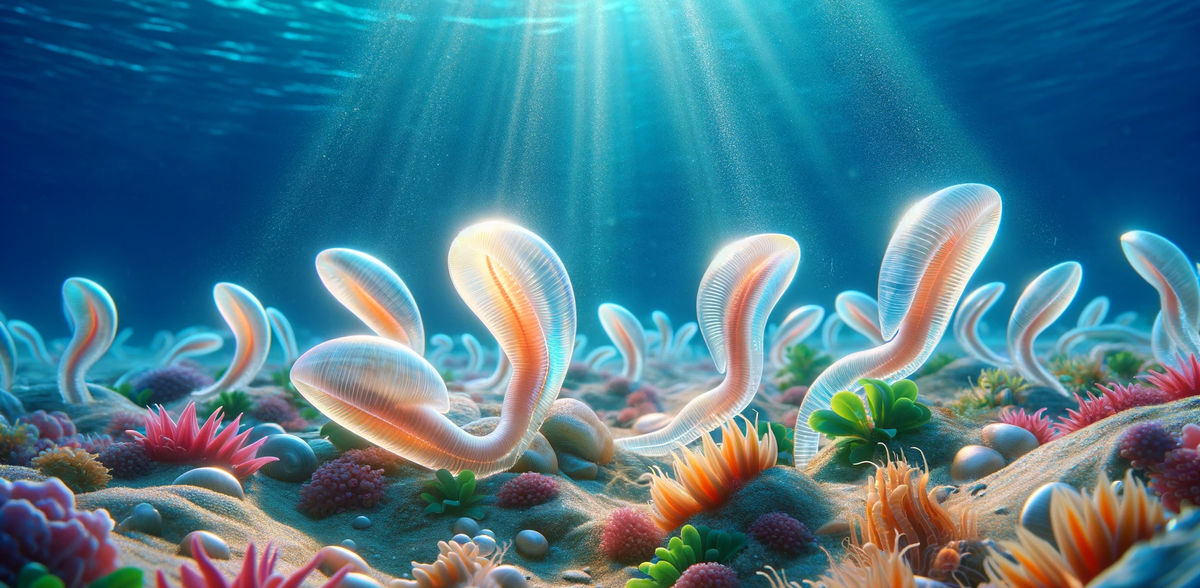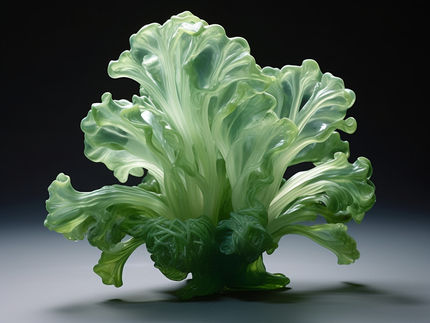Naked Clams: The New Superfood Sensation Emerging from the Depths
Researchers found Naked Clams contain almost twice the amount of Vitamin B12 as blue mussels and have developed an efficient way to farm them
Advertisement
Researchers hoping to rebrand a marine pest as a nutritious food have developed the world’s first system of farming shipworms.The long, white saltwater clams – which the team has renamed Naked Clams – are the world’s fastest-growing bivalve and can reach 30cm in length in just six months.They do this by burrowing into waste wood and converting it into highly-nutritious protein, which has led to them being eaten by coastal communities for centuries.In a series of tests, detailed in a study published in the journal Sustainable Agriculture, researchers found that levels of vitamin B12 in the Naked Clams were higher than in most other bivalves, and almost twice the amount found in blue mussels.With the addition of an algae-based feed, they can also be fortified with omega-3 polyunsaturated fatty acids – nutrients essential for human health.Dr Reuben Shipway, Lecturer in Marine biology in the University of Plymouth’s School of Biological and Marine Sciences, is senior author of the new study and has been studying the impact of shipworms in the marine environment for more than a decade.
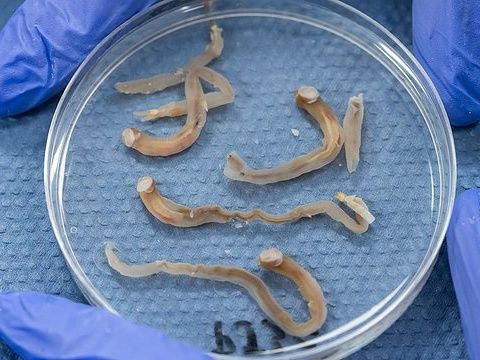
Naked Clams
University of Plymouth
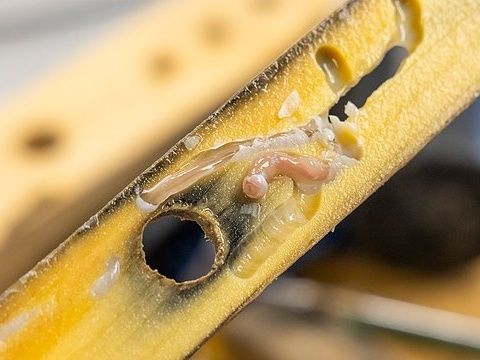
University of Plymouth
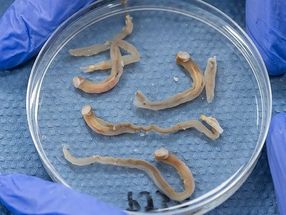
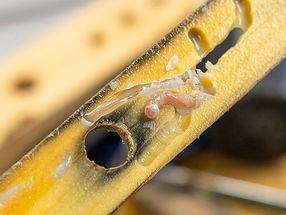
"We urgently need alternative food sources that provide the micronutrient-rich profile of meat and fish but without the environmental cost. Our system offers a sustainable solution. Wild shipworms are eaten in the Philippines – either raw, or battered and fried like calamari – but we’re thinking of Naked Clams being more popular as a ‘white meat’ substitute in processed foods like fish fingers and fishcakes. It may well become a fantastic way to reduce your carbon footprint." Reuben Shipway, Lecturer in Marine Biology
Scientifically named teredinids, the creatures have a tiny shell but are classed as bivalve shellfish and related to oysters and mussels.Because the Naked Clams don’t put much energy into growing shells, they grow much faster than mussels and oysters which can take two years to reach a harvestable size.For thousands of years, shipworms have been viewed as a pest because they bore through any wood immersed in seawater, including ships, piers and docks.However, the researchers are now turning the tables on the species and hoping to use their natural instincts as a sustainable and easy to cultivate source of food.To this end, they have developed a fully-enclosed aquaculture system that can be completely controlled, eliminating the water quality and food safety concerns often associated with mussel and oyster farming.The modular design means it can be used in urban settings, far from the sea, with wood and water being the only ingredients required.
"Naked Clams taste like oysters, they’re highly nutritious and they can be produced with a really low impact on the environment. Naked Clam aquaculture has never been attempted before. We’re growing them using wood that would otherwise go to landfill or be recycled, to produce food that’s high in protein and essential nutrients like Vitamin B12". Dr David Willer, Lead author on the new study, and Henslow Research Fellow at the University of Cambridge’s Department of Zoology
The research has attracted funding from sources including The Fishmongers’ Company, British Ecological Society, Cambridge Philosophical Society, Seale-Hayne Educational Trust, and the Biotechnology and Biological Sciences Research Council.The team is now trialling different types of waste wood and algal feed in their system to optimise the growth, taste and nutritional profile of the Naked Clams, and is working with Cambridge Enterprise to scale-up and commercialise the system.
Original publication
Other news from the department science
Most read news
More news from our other portals
See the theme worlds for related content
Topic world Food safety
Food safety is at the heart of the food and beverage industry. It ensures that the food we eat every day is not only nutritious, but also free of harmful contaminants. From field to plate, the industry monitors and regulates every step of the process with strict quality controls, advanced testing methods and continuous research.

Topic world Food safety
Food safety is at the heart of the food and beverage industry. It ensures that the food we eat every day is not only nutritious, but also free of harmful contaminants. From field to plate, the industry monitors and regulates every step of the process with strict quality controls, advanced testing methods and continuous research.
